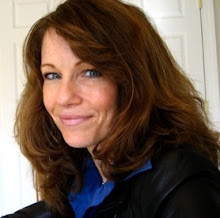In an odd coincidence or bizarre sign from the universe, I keep coming upon articles and books that discuss how important it is for writers to ask questions about characters and pl
 ot, yet (here’s the twist) not accept the first answers. In other words, the emphasis is on digging deeper, going for the gold.
ot, yet (here’s the twist) not accept the first answers. In other words, the emphasis is on digging deeper, going for the gold.In Character & Viewpoint, Orson Scott Card writes: “Never let an idea pass through your mind without giving it the third degree.” Is the idea compelling? Important? Why? What will happen to make the story more relevant? Why is this important to the characters? Why should the reader care? According to Orson Scott Card (and others), chances are the first answers to these questions will be cliché, too obvious, or too easy. To find the best answers, the ones that are surprising and unique, a writer must excavate and burrow down below the surface.
Let’s be honest: It’s easy to go with the first answer, to think that it’s golden and glittery and perfect for the story. At least it is for me. Sometimes it takes time, a big step back, and contemplation to realize that the shiny first answer might be fool’s gold. Maybe the real gold, the best stuff, requires more mining.

What do you think? When you are crafting something new or reworking part of a work in progress, do you become enamored with the first answers that come to you? Or do you push, dig deeper, try to find a twist or something unique—the gold?
When you are reading, do you recognize when a writer hasn’t gone deep enough? Does this make a difference to you?
Photo credit for top photo: shovelshats.JPG by: taliesin at www.morguefile.com










 when someone is labeled as having a gift or talent, what that person really has is a great and mighty passion and dedication to do whatever is necessary to create or perform well? To, say, win a Super Bowl? Or write an award-winning novel? Maybe the passion is the gift.
when someone is labeled as having a gift or talent, what that person really has is a great and mighty passion and dedication to do whatever is necessary to create or perform well? To, say, win a Super Bowl? Or write an award-winning novel? Maybe the passion is the gift.